Funny Stong Emphisis on Spanish Words





30 funny Spanish expressions that will make you and your Spanish friends smile
Spanish people are known worldwide for their sense of humor. Indeed, it is something you will appreciate once you get to know some of the most common Spanish phrases.
If you are learning this beautiful language and you want to truly express yourself as a native Spanish speaker, you will surely find this article useful.
Please be aware that these expressions are from Spain, not necessarily from Latin America.

Are you ready? Here you have my personal selection of some funny Spanish phrases that will allow you to express your feelings or to describe daily situations with a touch of humor!
1. A buenas horas, ¡mangas verdes!

This expression is usually used when something that was highly expected happens late.
It is thought that the origins of the sentence date back to the fifteenth century when Isabel the Catholic created the first police force in Spain, whose members earned the bad reputation of always being late when it came to carrying out their duties.
It can be translated as 'At good hours, green sleeves!' and this last part of the sentence refers to the green sleeves of those policemen uniforms.
Read: 25 Snacks From Spain
2. ¡Qué fuerte me parece todo!

In Spain, gossiping about everyone's life is something that happens regularly, especially in small towns.
When an amazing tidbit is discussed and nobody knows how to react a ¡que fuerte me parece todo! is always the best answer.
This formula is simply the best way to show your astonishment and it literally means 'What strong it seems all to me!' and it means that something is hard to believe.
Read: What to eat in Spain
3. ¡No he pegado ojo en toda la noche!
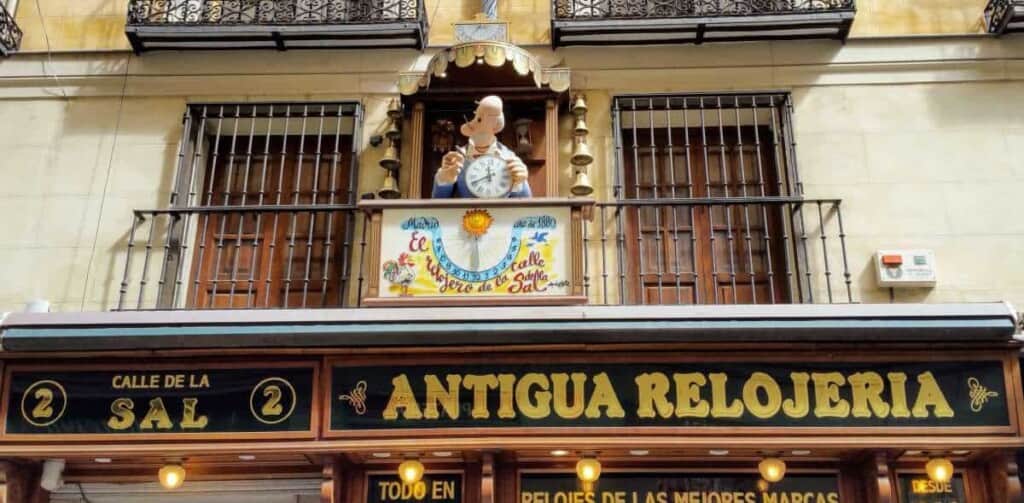
Before the pandemic, Spaniards used to enjoy the offer of their city's leisure nightlife to the limit.
As a result, it is common to hear them saying No he pegado ojo en toda la noche, which literally can be translated as 'I haven't stuck an eye all night' and it means that you haven't slept at all.
It is often used too when something has troubled you all night and it made it impossible to rest.
Read: Best Historic Hotels in Spain
4. ¡Me tienes hasta la coronilla!
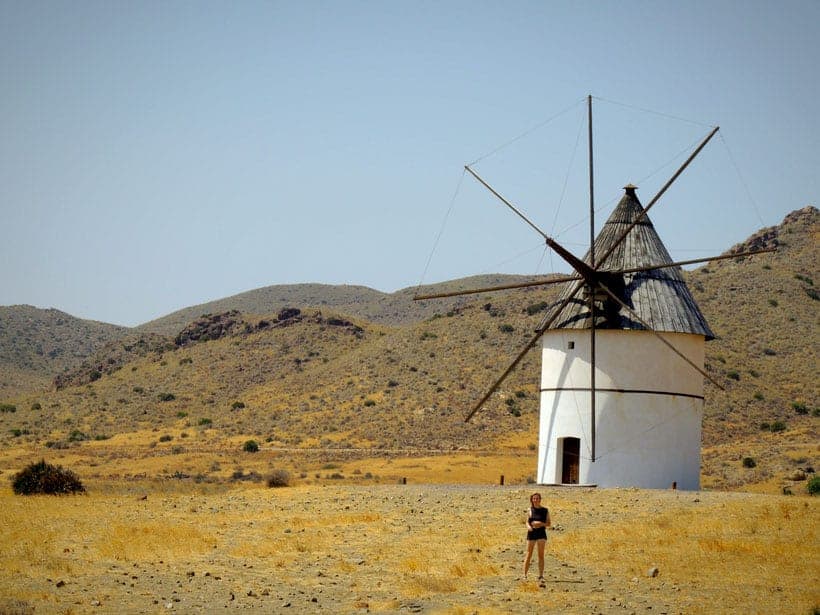
¡Me tienes hasta la coronilla! is on my top ten list of useful Spanish phrases to express that someone is done with your patience.
Whoever uses this phrase intends to end a conversation or to let someone kindly know that a certain attitude is annoying.
In Spanish, Coronilla is the word that describes the top of human heads and it also means 'little crown', which is funny because both of them are located in the same place.
Imagine you are driving with kids to an amusement park and they start asking each thirty seconds how far is it. You will probably be able to handle this situation the first five minutes; however, after that you will be allowed to tell them that it has been enough.
So don't hesitate about resorting to these wonderful terms.
Related: Movies set in Spain
5. ¡Estoy hasta el moño!
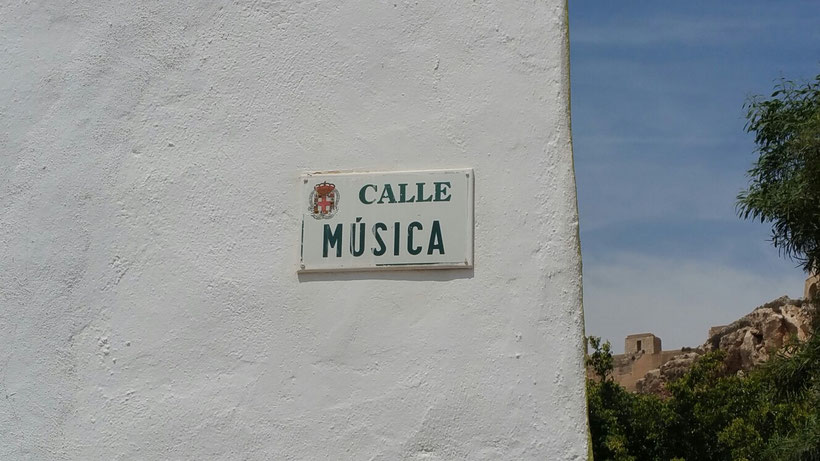
This expression is a synonym of the previous one. However, instead of using the word coronilla, you use moño, whose meaning is 'bun'.
As you may appreciate these two sentences are simple Spanish phrases that allow you to let off steam.
Read: What is Spain Known For
6. Donde Cristo perdió su zapato

I personally consider this to be one of the funniest expressions in Spanish. Donde Cristo perdió su zapato means 'Where Jesus Christ lost his sandal' and it is used when you want to exaggerate that something is in a remotely distant place.
Even those who live on relatively small Spanish islands like Majorca tend to use this expression continuously, which makes it even funnier for people used to long distances.
Read: 10 "Off The Beaten Path" Spain Attractions
7. ¡Ojito!

¡Ojito! can be used alone or in combination with multiple formulas depending on each specific situation.
It is a word used to warn you of danger; however, its literal translation is 'little eye!'
If you spend some time in Spain, I'm sure you'll hear phrases like ¡Ojito con el agujero!, which means 'Mind the gap!'; ¡Ojito con la profe! to let you know that a certain teacher may be strict; or ¡Ojito con Manuel! to make you aware of the fact that Manuel may hurt your feelings.
Read: 40 Most Beautiful Places in Spain
8. Al mal tiempo, buena cara
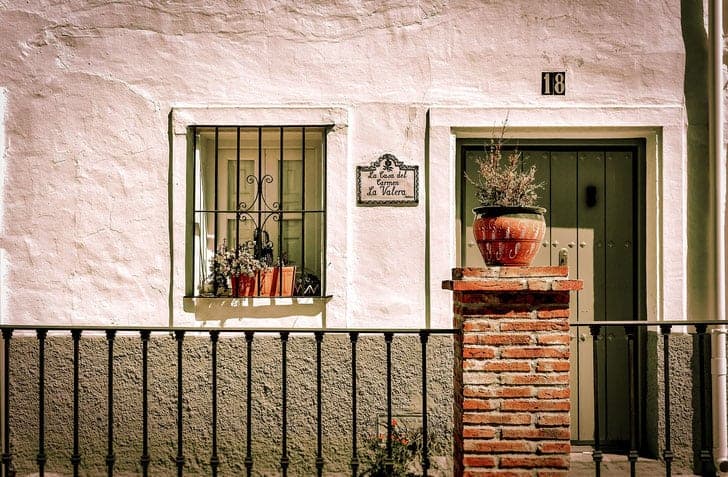
When adversity looms over you, most Spaniards comfort and encourage each other with this traditional saying.
Al mal tiempo, buena cara wants to boost someone's resilience towards a difficult situation and it is commonly used to lighten the mood, that's why it may be considered as one of the most important sweet Spanish phrases.
Its literal translation is 'To bad weather, pretty face' and native speakers love to use this one in bad times.
Read: The Prettiest Wineries near Barcelona
9. Palabrita del niño Jesús

Palabrita del niño Jesús is commonly used by children to make promises or to claim they are telling the truth; even though, they may be lying. Its literal translation is 'Little word of babe Jesus'.
It is just their most common way to earn credibility; however,t we all know that children are very imaginative.
That's why you shouldn't be surprised if you hear that expression to support that it shouldn't surprise you that they just saw a unicorn a minute ago.
Read: 14 Delicious Dishes to Try in Madrid
10. ¡No puedo con mi alma!
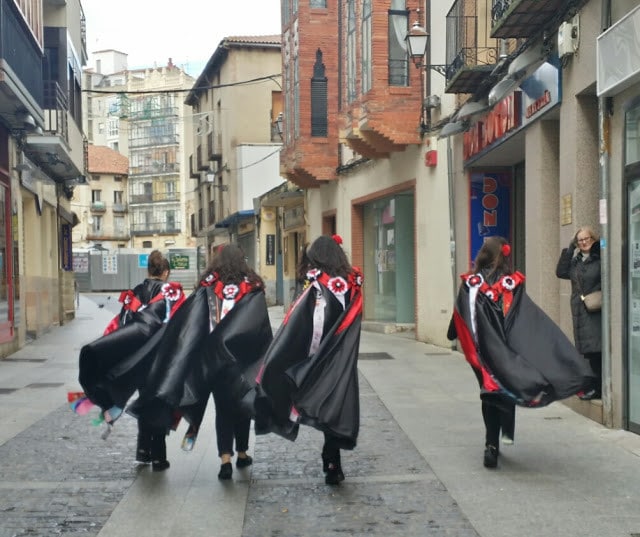
It is probably the best way to express that you are utterly drained. You can use it not only after a long working day but also when you finish an exhausting workout session.
Literally, it means 'I can't with my soul!' and it implies that your whole body hurts and that you are super tired. However, it is normally used in an informal and joyful atmosphere.
This is also one of the most funny Spanish quotes.
Read: Best Neighborhoods to Stay in Madrid
11. ¡Qué viva la madre que te parió!

When you do something extraordinary and the one who knows or sees that wants to acknowledge your merit, it is likely that they will exclaim ¡Qué viva la madre que te parió!
For example, it is common to hear that phrase when a footballer makes an overhead kick or saves a match with a last-minute goal.
In English it can be translated as 'Long live the mother who gave you birth!'. It is one of the best Spanish phrases to know when you are upset.
Read: My favorite City Breaks in Spain
12. ¡Ostras, Pedrín!

A common expression in Spanish is ¡Ostras, Pedrín!, which is normally said when someone tells you an unexpected event and you don't know exactly what to say, but you still want to show some interest.
Image your best friend is telling you that when she broke up with her boyfriend, he started dating her best friend. An ¡Ostras, Pedrín! may be your best ally.
It would be literally translated as 'Oysters, little Peter', which as you can appreciate doesn't mean anything specific, but it works.
If you love Spanish sayings and qutes, have a look at my positive quotes in Spanish.
Read: Where To Stay in Spain According to bloggers
13. Me importa tres pepinos

'It matters three cucumbers to me' is to say that you don't care at all about a certain topic and it can be really useful when you are having a conversation about something you don't want to talk about anymore.
Do not hesitate about using it when someone you trust is boring you with trivial matters. Nevertheless, avoid saying that to your boss or to a friend who is really concerned about a problem, because it may be quite rude.
Read: 12 Secret and Alternative Things to do in Madrid
14. ¡Hoy va a ser la leche!

If you are really excited and you have the feeling that today is going to be a great day, this is the ideal phrase to let others know you are really looking forward to living those experiences.
It is commonly heard when someone has a special day planned or when something that lets you get away from the routine is going to be done.
This phrase means 'Today it's going to be the milk!" literally.
Read: What to know about the traditional Costume of Tenerife
15. Eres la pera limonera
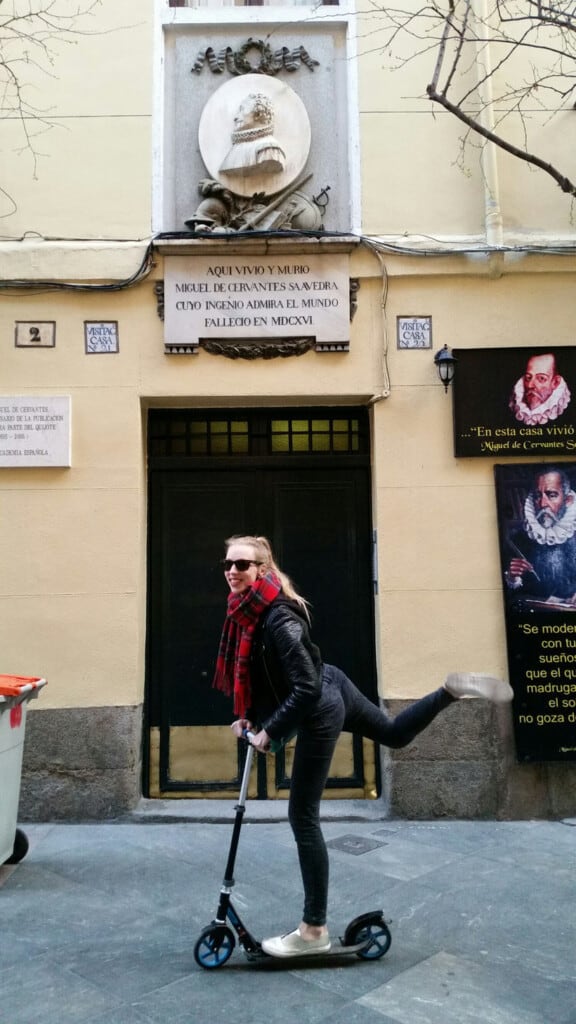
This is one of the easy Spanish phrases used to describe someone that is witty or amazing. You can also say Eres la leche, which is a variant of the previous sentence, and their meanings are identical.
The literal significance of Eres la pera limonera is 'You are a lemony pear'.
Read: 3 Secret Escapes Madrid
16. ¡Estoy sudando la gota gorda!

High temperatures in the south of Spain are nothing new and it's usual to hear locals exclaiming ¡Estoy sudando la gota gorda! when they are walking down the streets of their cities.
Literally, it means 'I am sweating the fat drop' and it is used when you are soaked in sweat, which may be followed by a 'Should we have a beer in a shady terrace?'.
Read: 25 Photos That Will Make you Want to Travel to Tenerife
17. Darle la vuelta a la tortilla
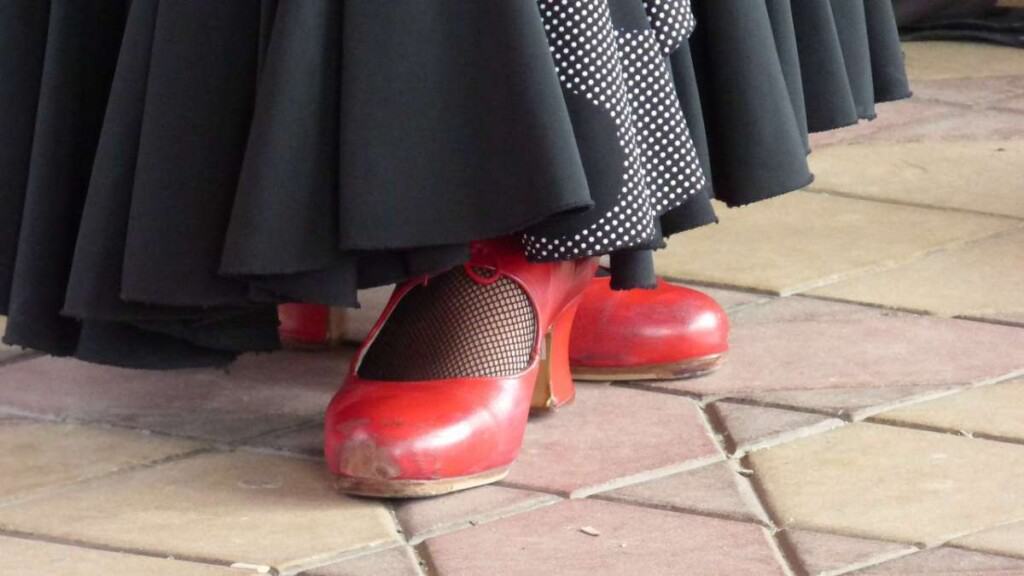
Don't be surprised if in the middle of a conversation that it's not related at all to food, someone says Siempre le da la vuelta a la tortilla o No le des la vuelta a la tortilla.
Let's analyze this sentence! Tortilla means omelet and darle la vuelta -although literally means to turn around – can be used as a synonym for changing the meaning.
For this reason, if you are having a discussion and you are trying to change the meaning of a fact in order to be right, your audience may reproach you 'having turned the omelet around'.
Read: How to Rock Spanish Ferias Despite Being 'Guiri'!
18. ¡Feliz Juernes!
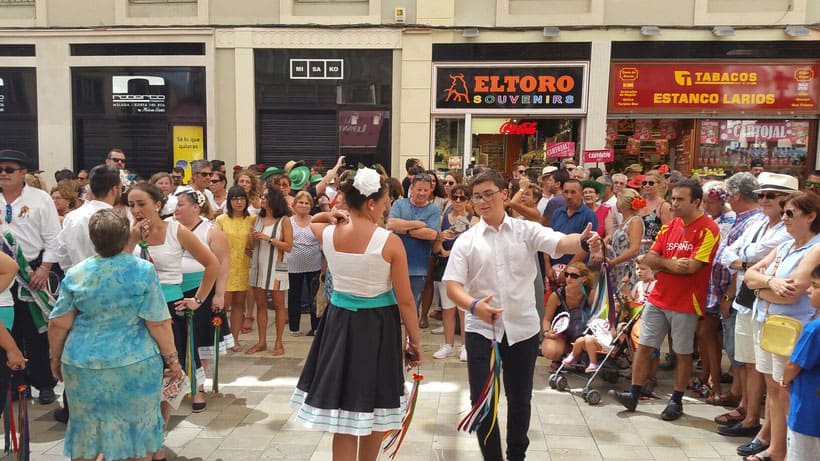
Juernes? Is there a day of the week called Juerves? Now, you may be wondering if you missed something important in your Spanish lessons because it is one of the most popular Spanish phrases.
Well, technically – and although it is not something official – when workers have a bank holiday falling on a Friday, it is common to ear ¡Feliz Juernes! as they leave their offices.
This is because that Jueves (Thursday) is felt like a Viernes (Friday) and the combination of both words is Juernes.
Read: Tenerife's Top 7 from an Expat View
19. Las cosas claras y el chocolate espeso

If you want someone to get to the point and to stop rambling about an ambiguous anecdote, do not hesitate about saying las cosas claras y el chocolate espeso.
The sentence plays with two different meanings of the word claras, which can be translated as clear or light. In this case, it means that explanations should be clear. However, the second part of the expression introduces the concept of espeso, which is thick.
This expression is a claim for clear explanations in contrast to how Spanish people usually like to have their hot chocolate.
So it is a statement of principles about two non-related topics.
Read: Spanish Hot Chocolate Recipe
20. Estoy en la flor de la vida

If someone is making you feel older than you are, you can use this phrase to show your complete disagreement.
The literal significance of Estoy en la flor de la vida is 'I am in the flower of life' which may be considered as your best possible moment.
Read: Do you speak Canarian Spanish?
21. Dormir la mona

After a long night partying, you may need to dormir la mona, specially if you have had some more drinks than you should.
'To sleep the female monkey' is the literal translation of this usual phrase among young people.
Read: 50 Top Things to do in Andalucia for 1st Time Visitors
22. Noches de desenfreno, mañanas de Ibuprofeno

There is another possible and funny way to express that there is a need to rest after a hard-party night, which is Noches de desenfreno, mañanas de Ibuprofeno.
Its significance is 'Messy nights, ibuprofen mornings'
Read: Best Neighbourhoods to stay in Seville
23. Por si las moscas

You have planned a weekend on a fantastic hotel and you pack three swimsuits, two jeans, three t-shirts, two blouses, a dress, some sports clothes, a pair of trainers, sandals and two high-heel shoes por si las moscas.
It is one of the most common Spanish travel phrases and its meaning is just in case; however, it literally means 'for if the flies'.
24. ¡Vete a freír espárragos!

Another typical expression used when you want someone to leave you alone and to end up a conversation is ¡Vete a freír espárragos!
It literally means 'Go to fry asparagus!', which is an arduous and time-consuming task that would keep anyone busy.
25. Mi gozo en un pozo

This funny-sounding phrase implies that something joyful that was counted on has been frustrated or spoiled. For example, it is used when a plan was canceled.
Literally, it can be translated as 'My happiness in a well' and it is one of the most catchy Spanish phrases because of its rime.
26. Te he pillado con el carrito de los helados
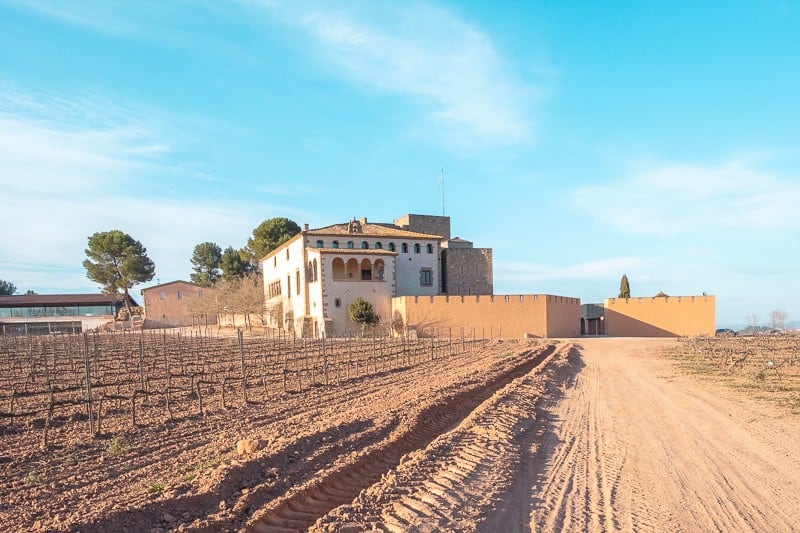
When you try to act discreetly but you are caught; those who discover you may use this Spanish phrase to let you know you have been discovered.
The literal translation of this sentence is 'I have caught you with the little ice cream cart'.
27. Diva se nace, no se hace
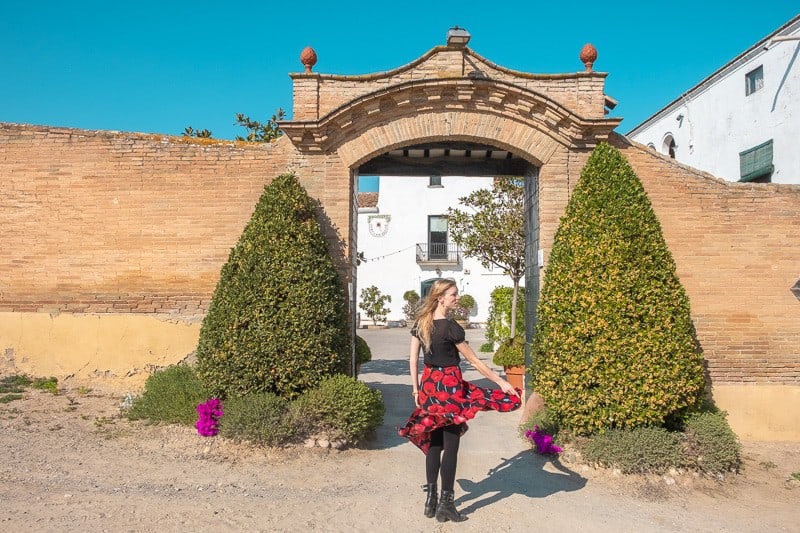
If someone is trying to imitate your style or to be like you, your best defense may be a good attack. Diva se nace, no se hace lets them know that it doesn't matter how much they try that if they haven't born this way, they will never be like you.
It means 'A Diva is born, not made' and it can be considered one the most beautiful Spanish phrases to cheer your friends up.
28. ¡Qué subidón!

When something really exciting or an extreme experience just happened, Spanish people may express that feeling by saying out loud ¡Qué subidón!
It may be understood as a 'Wow!' but literally it means 'What a big rise!' which may be related to your experience in a roller coaster.
29. ¡Cómo está el patio!

In the old days, if a play was very bad or the actors didn't do their job well, people would scream and get angry. Then, either the director of the play, the owner of the theater or the actors used to say: 'How is the courtyard!'
Nowadays, this same expression allows you to let others know that the mood is tense and that they should be careful.
30. Con esto y un bizcocho…

It is used to settle a matter and it is followed by a sentence to let others know when the topic is going to be discussed again.
For example Con estoy y un bizcocho, hasta mañana a las ocho, which literally means 'With this and a cake, until tomorrow at eight'
Related: Spanish Quotes about Life
Short FAQ about funny expressions from Spain
What are some of the funniest sounding words in Spanish?
Some funny Spanish words are tropezón, which is a piece of something eatable that you put on the top of a soup; or mamporrero, who is the person that helps horses to have successful sexual relations.
What are some words and phrases that are used in Spain but sound weird in Mexico?
Some funny Latin phrases that may sound weird in Spain are ¡Ándale! and Chingón. In Spain, we say ¡Vamos! instead of ¡Ándale! to ask someone to do something quicker. Moreover, Chingón is replaced by simpático or agradable, whose significance in English is kind.
What are the most useful phrases in Spanish?
Some basic Spanish phrases to get to know people are ¿Qué tal estás?, which means 'How are you?'; and ¿Cuándo unas cañas?, whose meaning is 'When are we having a beer?'.
If you are also interested in romantic Spanish phrases, Tienes la sonrisa que alegra mis días may help you start a beautiful conversation. This sentence means 'You have got the smile that brightens my day'
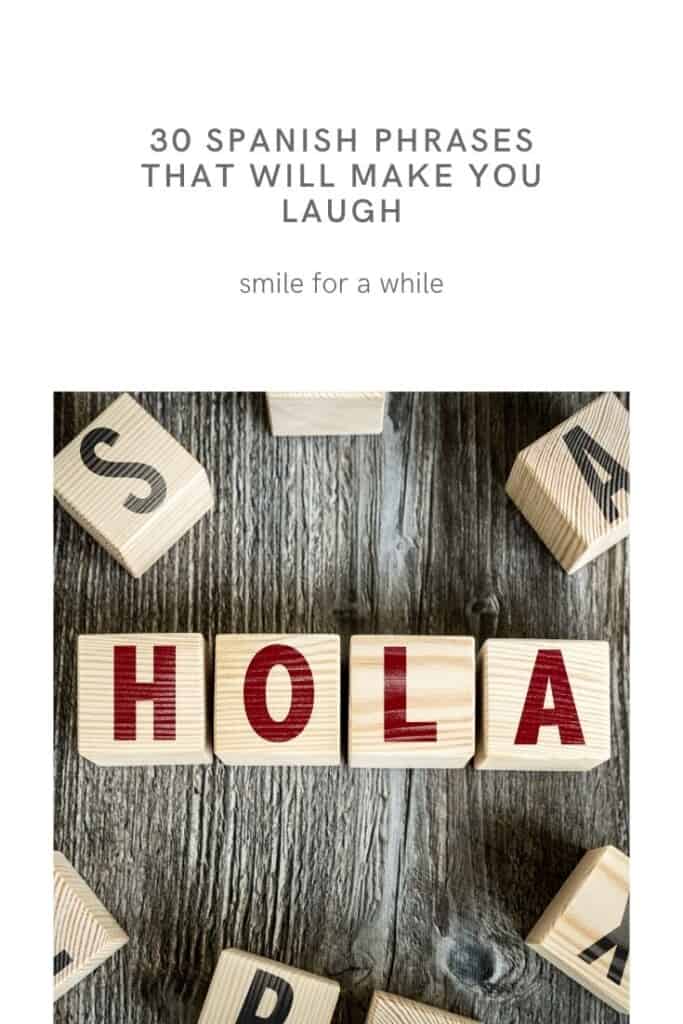

Source: https://paulinaontheroad.com/funny-spanish-phrases/
0 Response to "Funny Stong Emphisis on Spanish Words"
Post a Comment